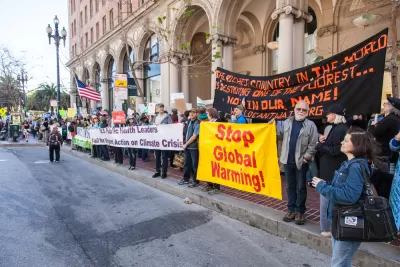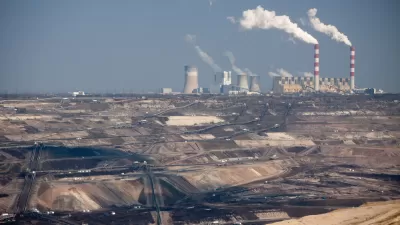Although clear climate communication is more important than ever, many people find even basic terminology about climate change confusing, research shows.

"A recent study found that some of the most common terms in climate science are confusing to the general public," reports Rebecca Hersher, leading scientists and activists to seek better ways of communicating with the public.
"Clear climate communication gets more important every day because climate change is affecting every part of life on Earth. Nurses, doctors, farmers, teachers, engineers and business executives need reliable, accessible information about how global warming is affecting their patients, crops, students, buildings and businesses."
The group of scientists working on the 2023 National Climate Assessment, "the most comprehensive, public-facing climate change report for the U.S.," has been tasked with improving the language used in the next report. Allison Crimmins, the director of the assessment, says "[c]limate scientists and people who communicate about climate science have a responsibility to think about the terminology they use." According to Crimmins, "one way to make the information clearer is to present it in many different ways."
For its part, "[t]he United Nations has also tried to make its climate change reports more accessible. The most recent report from the U.N. Intergovernmental Panel on Climate Change was more than 3,900 pages long and highly technical, but it also included a two-page summary that stated the main points in simple language, such as, 'It is unequivocal that human influence has warmed the atmosphere, ocean and land.'"
FULL STORY: Enough With The Climate Jargon: Scientists Aim For Clearer Messages On Global Warming

Maui's Vacation Rental Debate Turns Ugly
Verbal attacks, misinformation campaigns and fistfights plague a high-stakes debate to convert thousands of vacation rentals into long-term housing.

Planetizen Federal Action Tracker
A weekly monitor of how Trump’s orders and actions are impacting planners and planning in America.

In Urban Planning, AI Prompting Could be the New Design Thinking
Creativity has long been key to great urban design. What if we see AI as our new creative partner?

King County Supportive Housing Program Offers Hope for Unhoused Residents
The county is taking a ‘Housing First’ approach that prioritizes getting people into housing, then offering wraparound supportive services.

Researchers Use AI to Get Clearer Picture of US Housing
Analysts are using artificial intelligence to supercharge their research by allowing them to comb through data faster. Though these AI tools can be error prone, they save time and housing researchers are optimistic about the future.

Making Shared Micromobility More Inclusive
Cities and shared mobility system operators can do more to include people with disabilities in planning and operations, per a new report.
Urban Design for Planners 1: Software Tools
This six-course series explores essential urban design concepts using open source software and equips planners with the tools they need to participate fully in the urban design process.
Planning for Universal Design
Learn the tools for implementing Universal Design in planning regulations.
planning NEXT
Appalachian Highlands Housing Partners
Mpact (founded as Rail~Volution)
City of Camden Redevelopment Agency
City of Astoria
City of Portland
City of Laramie



























